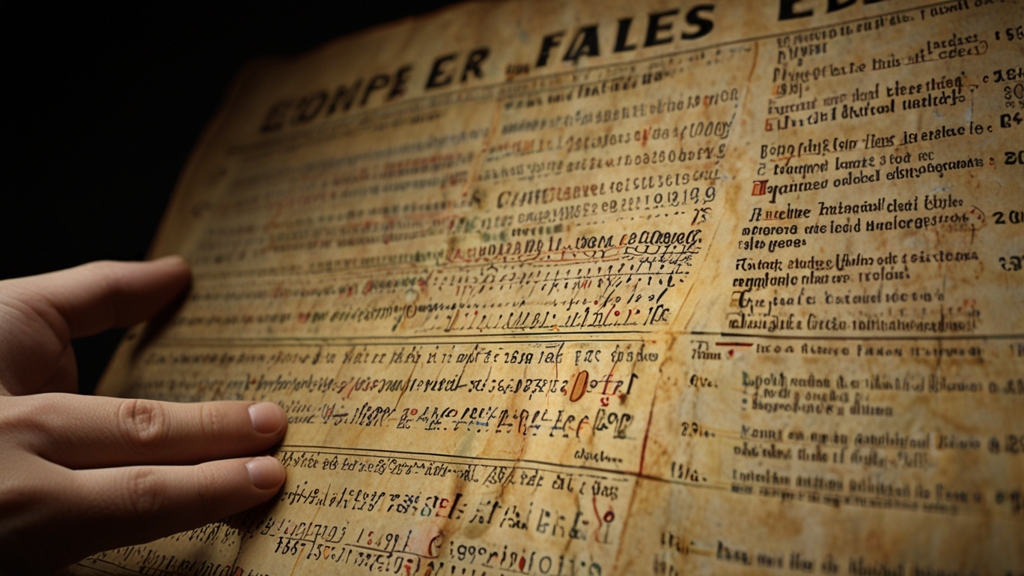Shocking Lies and Deceptions Among Bible Characters
The Bible, a foundational text for millions around the globe, is often viewed as a source of moral teachings and divine inspiration. Yet, interwoven within its sacred pages are numerous stories of deception and falsehoods committed by revered characters. These tales, while surprising, serve to underscore the complexities of human nature and the multifaceted journey of faith, redemption, and forgiveness.
Abraham and Sarah's Deceptive Ploys
One of the earliest instances of deception in the Bible involves Abraham, the patriarch of the Israelites, and his wife, Sarah. Fearful for their lives while sojourning in Egypt, Abraham instructed Sarah to pose as his sister rather than his wife. This lie was intended to protect Abraham from being killed by those who might covet Sarah's beauty.
And it came to pass, when he was come near to enter into Egypt, that he said unto Sarai his wife, Behold now, I know that thou art a fair woman to look upon: Therefore it shall come to pass, when the Egyptians shall see thee, that they shall say, This is his wife: and they will kill me, but they will save thee alive. Say, I pray thee, thou art my sister: that it may be well with me for thy sake; and my soul shall live because of thee.
This premeditated deception resulted in Pharaoh taking Sarah into his palace, bringing plagues upon his household until the truth was revealed. Remarkably, Abraham repeated a similar act with King Abimelech of Gerar, lying about Sarah's identity yet again (Genesis 20).
Jacob's Intricate Web of Lies
Jacob, another prominent figure, is notorious for his deception, particularly in obtaining his brother Esau's birthright and blessing. With Rebekah's urging, Jacob deceived his blind father, Isaac, by impersonating Esau, thus securing the blessings meant for the firstborn.
And Jacob said unto his father, I am Esau thy firstborn; I have done according as thou badest me: arise, I pray thee, sit and eat of my venison, that thy soul may bless me.
This act of deceit had longstanding ramifications, sowing discord between the brothers and leading to Jacob's prolonged exile. Interestingly, Jacob himself later became a victim of deception at the hands of his father-in-law, Laban, who tricked him into marrying Leah instead of Rachel.
Rahab's Strategic Lies
Not all biblical deceptions are viewed negatively. Rahab, the prostitute in Jericho, lied to her city's officials about hiding Israelite spies. This act of deception directly facilitated the Israelite conquest of Jericho and is celebrated as an act of faith.
And the woman took the two men, and hid them, and said thus, There came men unto me, but I wist not whence they were: And it came to pass about the time of shutting of the gate, when it was dark, that the men went out: whither the men went I wot not: pursue after them quickly; for ye shall overtake them.
Rahab's story is particularly compelling because it illustrates how her deception was ultimately used for a higher purpose. Her faith and actions led to her and her family's salvation and she is honored in the lineage of Jesus Christ (Matthew 1:5).
Ananias and Sapphira's Fatal Deceit
In the New Testament, the story of Ananias and Sapphira serves as a stark warning against deceit. This couple sold a piece of property and lied about the proceeds, claiming to have donated the entire amount to the early Christian community while withholding a portion for themselves. This act of deception had fatal consequences.
But Peter said, Ananias, why hath Satan filled thine heart to lie to the Holy Ghost, and to keep back part of the price of the land? ... And Ananias hearing these words fell down, and gave up the ghost: and great fear came on all them that heard these things.
The immediate divine retribution that befell Ananias and Sapphira highlighted the severity with which deception, particularly within the community of believers, was regarded.
Conclusion
The stories of deception among Bible characters reveal human vulnerability and the sometimes messy, convoluted path of faith. These narratives serve not only as cautionary tales but also highlight the possibility of redemption. Whether through the fear-driven lies of Abraham and Sarah, the ambitious deceit of Jacob, the strategic falsehoods of Rahab, or the tragic duplicity of Ananias and Sapphira, the Bible presents a nuanced exploration of moral failures and the quest for divine grace.








